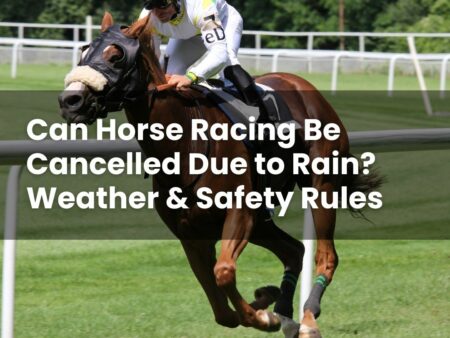Handicap betting in rugby is a popular way to level the playing field when one team is heavily favoured to win. By adding a points advantage or disadvantage, bookmakers make the contest more balanced from a betting perspective, offering a wider range of options for bettors.
While handicap betting may seem a little complicated at first, understanding the basics makes it much easier to follow.
This guide breaks down the key points step by step, helping you grasp how handicap betting works and how it might fit into your overall approach if you intend to place a bet. Read on to learn more.
How Handicap Betting Works In Rugby Matches
In rugby handicap betting, one team is given a virtual head start or deficit in points before the match begins. This creates a more even contest from a betting point of view, making both teams a more appealing option for bettors—even if the actual match looks one-sided.
For instance, a bookmaker might offer a handicap of -8 for the favourite and +8 for the underdog. Bettors backing the favourite would need them to win by nine points or more (after the handicap is applied) for the bet to pay out. A bet on the underdog would win if that team either wins the match or loses by fewer than eight points.
It’s the adjusted score—with the handicap added or subtracted—that determines the winning bet. Bettors should also note whether the handicap uses whole or half points. A line like +7.5, for example, eliminates the chance of a tie in the betting outcome, resulting in a clear win or loss.
Why Do Bookies Use Rugby Handicaps?
Rugby matches can sometimes seem one-sided, with a clear favourite and an underdog. In these situations, standard match result markets may feel unbalanced—making it difficult for bettors to find value. Handicap betting helps to level things out.
By giving the underdog a virtual points advantage—or applying a points deduction to the favourite—bookmakers create a more even contest from a betting perspective. This may make both sides more appealing to back, with odds that are typically closer together.
For bettors, handicaps open up a wider range of options and may add more interest to matches that might otherwise seem predictable. Once the core idea is understood, it’s easier to see how handicaps shape the betting markets and offer different ways to get involved.
Handicap Lines In Rugby – What Do The Numbers Mean?
The numbers shown next to teams in rugby handicap markets are key to how bets are settled. These figures represent points either added to, or taken away from, a team’s final score for betting purposes—not the actual result on the pitch.
For example, if a team has a -10 handicap, 10 points are subtracted from their final score when the result is calculated for the bet. If a team has a +10 handicap, 10 points are added instead. Some handicap lines use half points—like +7.5 or -7.5—which remove the possibility of a tie and lead to a clearer outcome.
Understanding how these numbers work allows bettors to assess which team, with their adjusted score, best matches how they expect the game to play out.
What Does +10.5 Or -14.5 Mean In Rugby Betting?
When a team has a +10.5 handicap, it means 10.5 points are added to their final score for betting purposes. Bettors backing this side will see their bet win if the team either wins the match outright or loses by ten points or fewer, once the adjustment is applied.
In contrast, a -14.5 handicap means 14.5 points are taken off a team’s score when settling the bet. For bettors to win here, the team must secure victory by at least 15 points.
These half-point handicaps—like +10.5 or -14.5—are commonly used to eliminate the chance of a draw in betting terms, offering a clear win-or-lose outcome.
Popular Handicap Markets On Rugby Bets
Handicap betting in rugby isn’t limited to just one format. Bettors will usually come across a few different types of markets, each offering a slightly different approach to predicting the outcome:
- Standard Handicap: This is the most familiar version, using whole numbers like +8 or -8 to adjust team scores before the result is settled.
- Half-Point Handicap: Here, figures such as +7.5 or -12.5 are used. The half-point removes the possibility of a draw in betting terms, so there’s always a clear outcome.
- Alternative Handicap: This market allows bettors to choose their own handicap line. It offers more flexibility, depending on how the bettor feels about the margin.
- Asian Handicap: While more common in football, this can appear in rugby on occasion. It often splits the bet across two close handicap lines, offering a different way to try to increase potential return.
Having access to these options means bettors can approach each match in a way that suits their view of how the game might play out. If one of these markets stands out to you, it’s worth considering how well handicap betting fits into your wider approach if you’re interested in placing a bet.
Is Handicap Betting On Rugby Worth It?
If you’re interested in placing a bet, handicap betting may add variety to how you follow a rugby match—particularly when one team is expected to dominate. By evening out the odds, it gives you more betting options than simply backing the winner.
If you enjoy thinking about how a game might unfold—right down to the margin of victory—it might suit your style. But if you prefer to keep things straightforward, you may find other markets more comfortable. It really depends on how you like to approach a match: do you enjoy analysing form and tactics, or do you prefer a more direct bet?
It’s also worth thinking about what you’re aiming for and how much you’re comfortable spending. All UK-licensed betting sites offer tools to help you manage your activity—such as setting deposit limits or taking breaks—so those options are always there if you want to use them.
Once you understand the basics, handicap betting may become an interesting part of how you explore rugby markets. It is important to keep in mind that the key is to keep things enjoyable and make choices that work for you.
If you intend to place any form of bet, you should always keep responsible gambling practices in mind, and never wager more than you are willing to lose.







